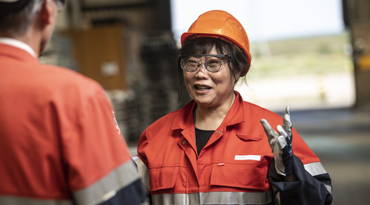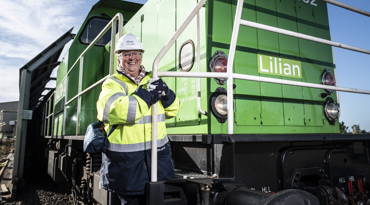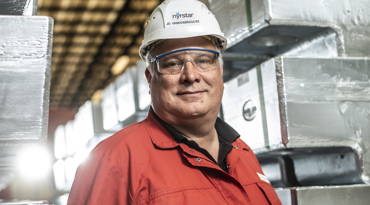The casting line that Nyrstar built in Balen last year is now fully in use. ‘With it we are responding to rising market demand for zinc alloys, reducing our carbon footprint and creating new jobs’, explains engineer Robin Soors, who runs the department on a daily basis as production coordinator.
Demand for zinc to protect steel against corrosion is increasing worldwide. The construction sector and the automotive industry, among others, are becoming increasingly large customers. Nyrstar is also noticing this. In addition to the existing casting lines at its other smelters, the metal expert opened a new casting line in Balen this year.
At all our sites, we can scale up our production very quickly and flexibly, absorb peaks or diversify between products, depending on market demand.
Ling Tao,
Technical & Market Development Manager at Nyrstar
‘This increases our total smelting and casting capacity in Europe,’ explains Ling Tao, Technical & Market Development Manager at Nyrstar. ‘We can now also
scale up production very quickly and flexibly at our Balen facility, absorb peaks or diversify between products.’
Galvanising for durability
The zinc Nyrstar produces and smelts in Balen is used, among other things, for galvanising steel. With their long service life, galvanised steel products offer optimum cost efficiency and contribute to lower CO2 emissions.
The unique and durable properties of galvanised steel mean that building materials like supporting beams, pipes, wall brackets, chimney caps and gutters are in high demand. ‘This also applies to the automotive industry: car chassis and bodywork now contain a certain amount of zinc, as do various car parts,’ Robin Soors tells us. ‘Zinc resists rust and corrosion for more than ten years.’
In the past, a large portion of the zinc produced in Balen was trucked to the Pelt or Budel (Netherlands) sites for smelting. ‘The new casting line in Balen is good news for our carbon footprint,’ Ling Tao insists. ‘Now that we can smelt zinc on site, an average of 2,000 fewer truck transports are needed every year between Balen and
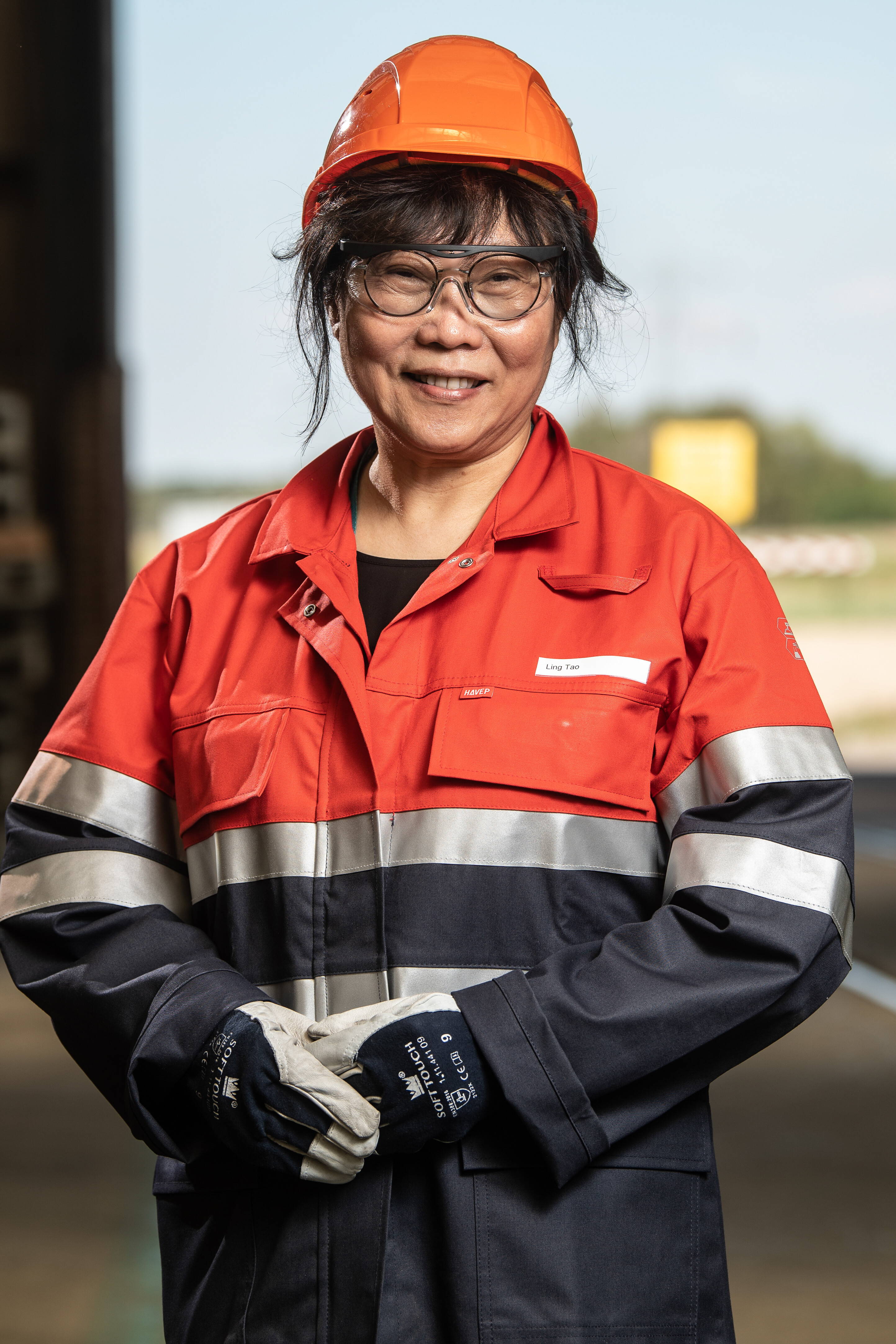
Pelt. That's good for the environment.’
Extra jobs and rising market demand
The new casting line will create additional jobs in the medium and long term, including in maintenance and production. Robin Soors: ‘The new casting line has been in continuous production since April. In practice, this means employees working in four shifts seven days a week. The demand for zinc is likely to increase even further in the coming years. That’s also good news for employment.’
Protecting steel against corrosion through galvanising represents 60 percent of zinc use worldwide. ‘We’ve discussed applications in transport and infrastructure, but the increasing number of zinc coatings required for solar and wind energy applications, along with zinc-
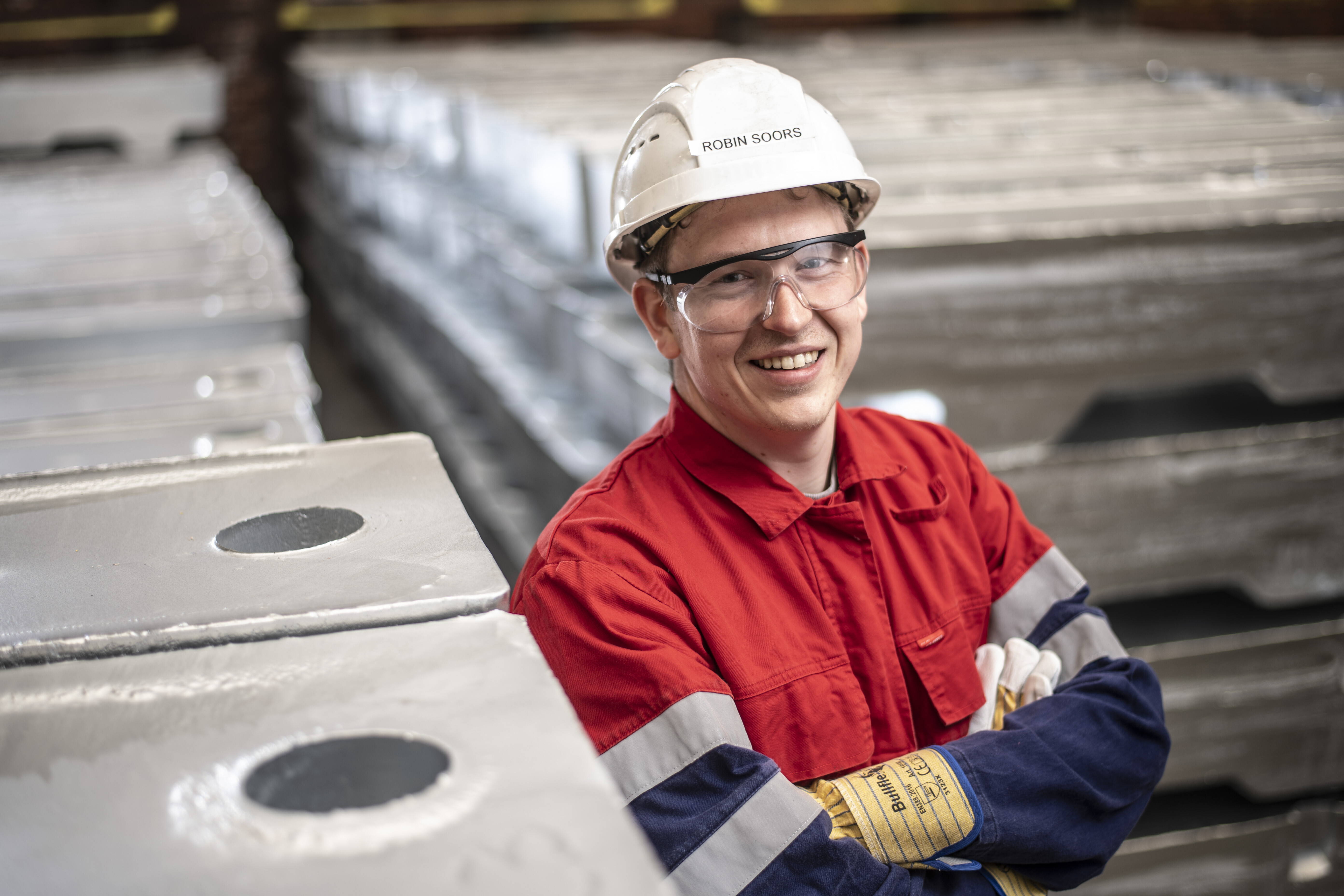
based energy storage systems for companies and private individuals are also examples of the versatile nature of zinc. It contributes to the circular economy in many ways,’ Ling Tao concludes. ‘We are prepared at all our locations to handle the peaks and meet increasing customer demand.’
The new casting line will also create additional jobs in the medium and long term, including in maintenance and production.
Robin Soors,
Production Coordinator at Nyrstar
